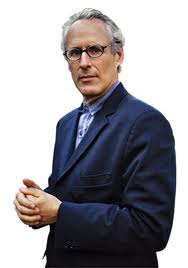Sometimes outtakes are very interesting.
 Last Friday, I went out to the Brooklyn Museum to have lunch with Arnold Lehman, and I commiserated with him as probably being the museum director in both the toughest position and on the receiving end of more advice than any other in the nation. (Can’t be proved, but … can you name other contenders for both issues?)
Last Friday, I went out to the Brooklyn Museum to have lunch with Arnold Lehman, and I commiserated with him as probably being the museum director in both the toughest position and on the receiving end of more advice than any other in the nation. (Can’t be proved, but … can you name other contenders for both issues?)
I thought the “advice” offered by various “experts” in The New York Times several weeks ago was useless. They were pep talks, at best. Lehman then mentioned that David Ross, formerly head of the Whitney, etc., had sent him his complete response to the Times, which was more useful than the tiny excerpt in print.
Eager to see what Ross said — I had shared a few ideas of my own with Lehman, then and in the past (a change in museum hours, hurray!) — I emailed Ross for a copy, which he forwarded.
I’d have to say that most of the email was observation rather than advice. But in one part Ross homed in on a general problem we know exists, but have done little about: The Trustee Problem, which I have written about before.
Here’s that part of Ross’s email:
Trustees of all museums, including Brooklyn’s, have to find the strength and resolve to play their role as hard-nosed fiduciaries, thoughtful patrons and as sensitive representatives of the communities the museum exists to serve. That is not as much fun as it may have seemed when the economy was strong, and corporations were competing for ways to show their love.
The fact that some trustees walk away from that responsibility can actually be a sign of a healthy museum. These are not lifetime honorific appointments, but rather represent an opportunity to serve, and hopefully a chance to bring their best problem-solving abilities to work on behalf of institutions that remain essential to healthy communities. Hopefully — as in the past — new trustees will come up through the museum volunteer ranks more slowly, having developed a real understanding of (and love for) the idea and reality of the museum before they are offered the honor of trusteeship.
 Ross is correct: some board turnover can be good, especially if they are acknowledging that they can not meet the financial commitment they made when they joined the board.
Ross is correct: some board turnover can be good, especially if they are acknowledging that they can not meet the financial commitment they made when they joined the board.
Second, some museums now have too many trustees that were invited solely for their wealth — museum boards themselves should be reevaluating that strategy. I asked Ross when that balance had changed:
…as the competition for big money trustees increased, the standards for trusteeship shifted from long-time devoted museum volunteer to those with available cash-flow, and the process was shortened. It’s not that there are not still some trustees at most major museums who are there to represent non-monied constituencies, but that the balance (and the balance of power) shifted noticeably in the 90’s and will probably never shift back to the way it was…
None of this is to suggest that all rich people are on boards for the wrong reasons; it is to suggest that sometimes everyone needs to be reminded why they’re on a board and that board members themselves should take more care about whom they invite to join them.
